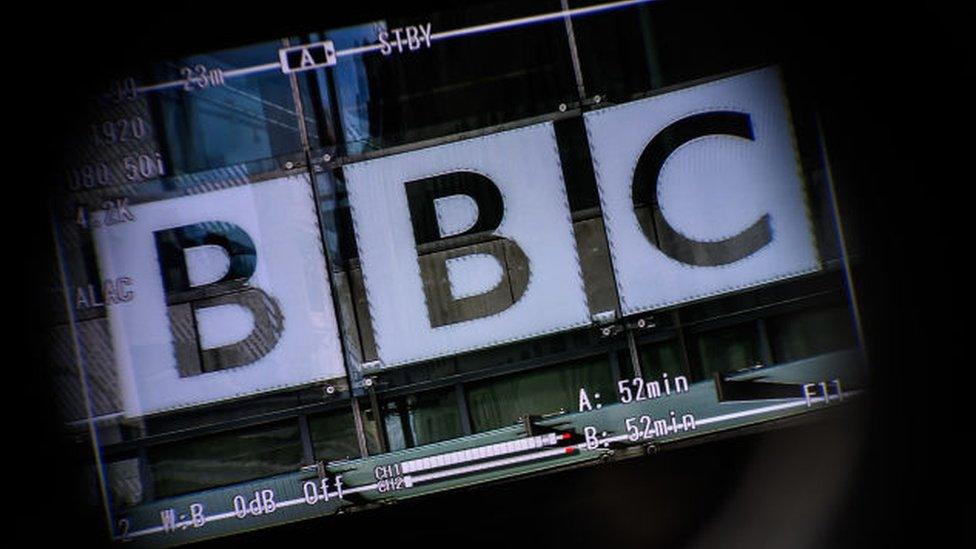BBC splits news operation in India
- Published

The BBC in India will separate in two from Wednesday, as it seeks to meet the country's foreign investment rules.
The BBC will retain its newsgathering team in India for its English language digital, television and radio outlets headquartered in London.
A new, independent, Indian-owned company called the Collective Newsroom will now produce content for the BBC's six other Indian language services.
The move comes a year after BBC India's offices were searched by authorities.
Those searches by income tax officials came weeks after the broadcaster aired a documentary in the UK - but not in India - critical of Indian Prime Minister Narendra Modi.
Gaurav Bhatia, a spokesman from Mr Modi's ruling Bharatiya Janata Party (BJP), said at the time that the timing of the raids had nothing to do with the documentary, which the government attempted to block being shared in India.
When the BBC announced the formation of Collective Newsroom in December, it said the new entity would enable it to meet its commitment to audiences in India and globally, while also complying with Indian FDI law.
The corporation has said it remains "committed" to the country, where it has an average weekly audience of 82 million people across its English and languages output.
The BBC has a long history in the country's media landscape, having first launched the Hindi language service in 1940.
The Hindi service will now be produced by the Collective Newsroom, along with Marathi, Gujarati, Punjabi, Tamil, and Telugu - as well as a YouTube channel BBC News India in English.
But the Collective Newsroom - which was formed by four BBC staff members and will employ about 200 former BBC employees - will also be able to make content for other news providers across India and globally.
The remaining 90 BBC staff members will still work directly for the broadcaster in news gathering operations for television, radio and online in English, reporting to editors in London. Their work will still be available to Indian audiences, although it will not be published in India.
The BBC has also applied for a 26% stake in the new company, a first for the broadcaster's global operations anywhere.
Rupa Jha, chief executive of Collective Newsroom, said the new company has "a clear, ambitious mission to create the most credible, creative and courageous journalism".
She added: "Audiences will quickly come to know Collective Newsroom as an independent news organisation that leads with the facts, works in the public interest and hears from diverse voices and perspectives."